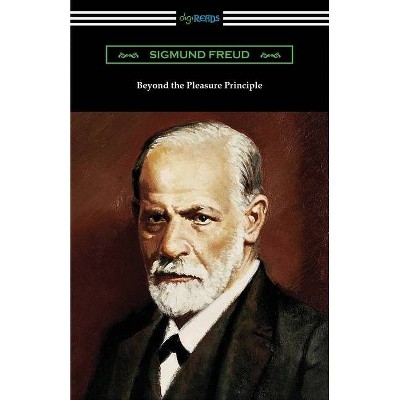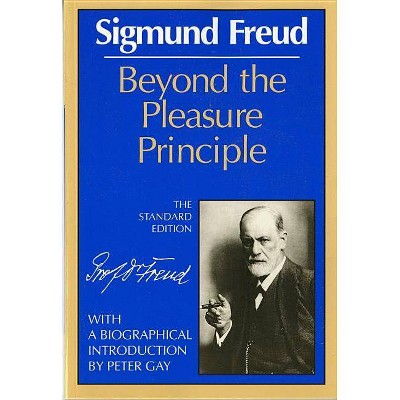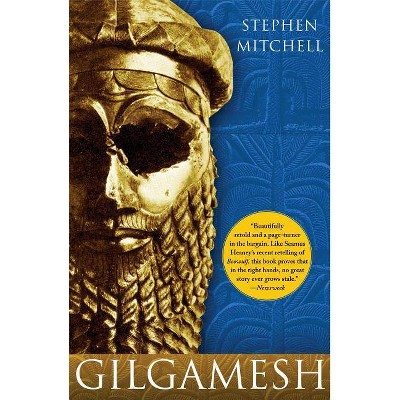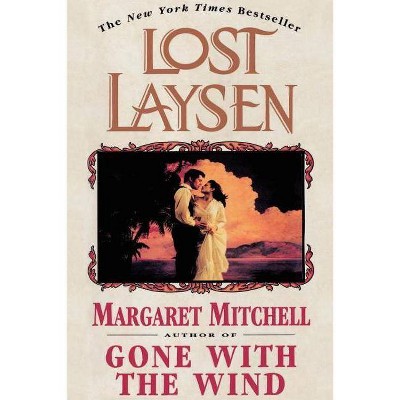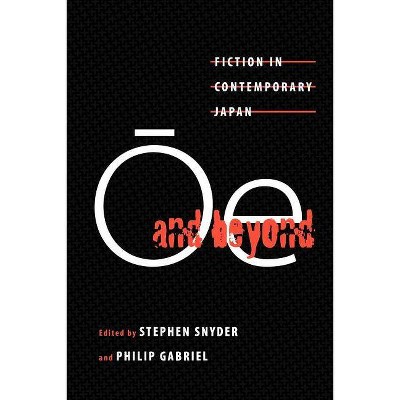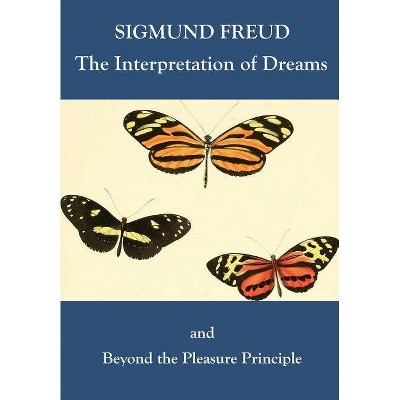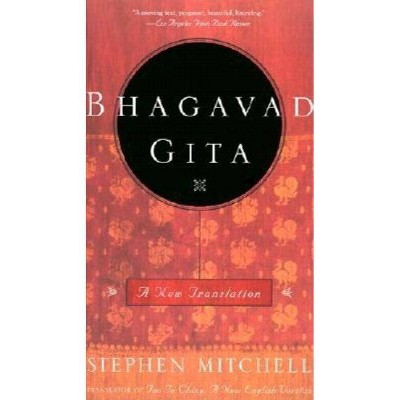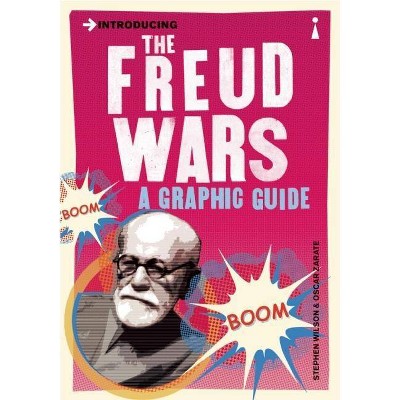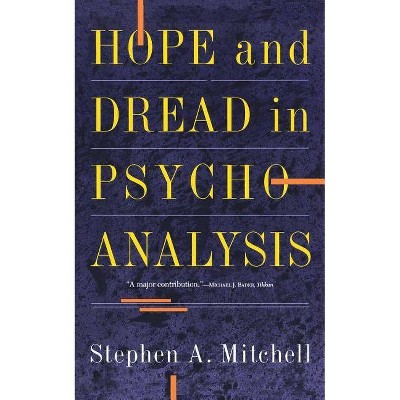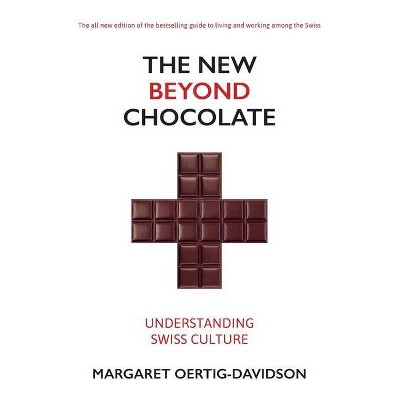Freud and Beyond - by Stephen A Mitchell & Margaret J Black (Paperback)
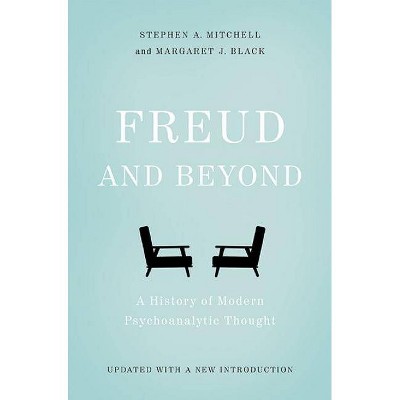
Similar Products
Products of same category from the store
AllProduct info
<p/><br></br><p><b> About the Book </b></p></br></br>Freud's concepts have become a part of our psychological vocabulary: unconscious thoughts and feelings, conflict, the meaning of dreams, the sensuality of childhood. But psychoanalytic thinking has undergone an enormous expansion and transformation over the past fifty years. With Freud and Beyond, Stephen A. Mitchell and Margaret J. Black make contemporary psychoanalytic thinking--the body of work that has been done since Freud--available for the first time. Richly illustrated with case examples, this lively, jargon-free introduction makes modern psychoanalytic thought accessible at last.<p/><br></br><p><b> Book Synopsis </b></p></br></br><b>The classic, in-depth history of psychoanalysis, presenting over a hundred years of thought and theories</b><b></b> <p/> Sigmund Freud's concepts have become a part of our psychological vocabulary: unconscious thoughts and feelings, conflict, the meaning of dreams, the sensuality of childhood. But psychoanalytic thinking has undergone an enormous expansion and transformation since Freud's death in 1939. With <i>Freud and Beyond, </i>Stephen A. Mitchell and Margaret J. Black make the full scope of twentieth century psychoanalytic thinking-from Harry Stack Sullivan to Jacques Lacan; D.W. Winnicott to Melanie Klein-available for the first time. <p/> Richly illustrated with case examples, this lively, jargon-free introduction makes modern psychoanalytic thought accessible at last. <p/><p/><br></br><p><b> Review Quotes </b></p></br></br><br>[<i>Freud and Beyond]</i> is remarkably coherent in a field notorious for the density of its technical prose. Authors such as Otto Kernberg and Jacques Lacan... are presented with great clarity.--<i><b>Boston Book Review</b></i><br><br>A fascinating, lucid, and surprisingly comprehensive overview of the development of psychoanalytic theory and practice since Freud.--<i><b>Readings</b></i><br><br>Inclusive, integrated, and lively, this book sets a new high standard as an introduction to contemporary psychoanalysis.--<i><b>Library Journal</b></i><br><br>Mitchell and Black offer a compelling vision of a profession 'struggling to expand and redefine itself.'--<i><b>Boston Phoenix Literary Section</b></i><br><br>Psychoanalysis is only valuable as uncommon common sense. <i>Freud and Beyond</i> is such an impressive and useful book because it makes psychoanalysis even more interesting by making it accessible.--<i><b>Adam Phillips, author of Missing Out</b></i><br><br>The advantage of this book lies in its relative simplicity. Writing for the reader with little psychoanalytic training, the authors share the myths, developments, and inadequacies in psychoanalytic thought over time.--<i><b>Clinical Social Work Journal</b></i><br><br>The best treatment of psychoanalytic theories, classical and current.--<i><b>Choice</b></i><br><br>This is a marvelous book which gives an overview of the work of just about all Freud's important disciples and dissenters. It is well recommended.--<i><b>Psychoanalytic Psychotherapy Review</b></i><br><br>Whenever I have been asked to recommend a fundamental text for graduate students and young professionals, or even for those expressing an initial interest in psychotherapy, Stephen A. Mitchell and Margaret J. Black's <i>Freud and Beyond</i> has been my go to text. The new edition, including an excellent preface highlighting recent developments in the field, remains the best survey of the history and development of psychoanalysis and the essential guide to its many schools, approaches and innovations. Brilliantly explaining theory and elucidating clinical practice with elegant and compelling case illustrations, this comprehensive introduction remains the best place to start in understanding Freud and his legacy.--<b>Lewis Aron, Ph.D., Director, New York University Postdoctoral Program in Psychotherapy & Psychoanalysis</b><br><p/><br></br><p><b> About the Author </b></p></br></br><b>Stephen A. Mitchell</b> (1946-2000) was a leader in the field of modern psychoanalysis. An adjunct professor and clinical supervisor at New York University's postdoctoral program in psychotherapy and psychoanalysis, Mitchell's emphasis on the relational perspective shaped the way that American psychoanalysts practice their profession. He was the founding editor of the journal <i>Psychoanalytic Dialogues</i> and the author of several influential books, including <i>Object Relations in Psychoanalytic Theory</i> and <i>Hope and Dread in Psychoanalysis</i>. <p/><b>Margaret J. Black, LCSW</b>, is founding board member of the Stephen Mitchell Center for Relational Studies. She is also a board director of the National Institute for the Psychotherapies, a founding board member and vice president of International Association for Relational Psychoanalysis and Psychotherapy, an associate editor of Psychoanalytic Dialogues, and a member of the editorial board for Studies in Gender and Sexuality. She holds a BA from the University of Michigan and an MS from Columbia University, and is a graduate of the Analytic Institute, Postgraduate Center.
Price History
Price Archive shows prices from various stores, lets you see history and find the cheapest. There is no actual sale on the website. For all support, inquiry and suggestion messagescommunication@pricearchive.us
